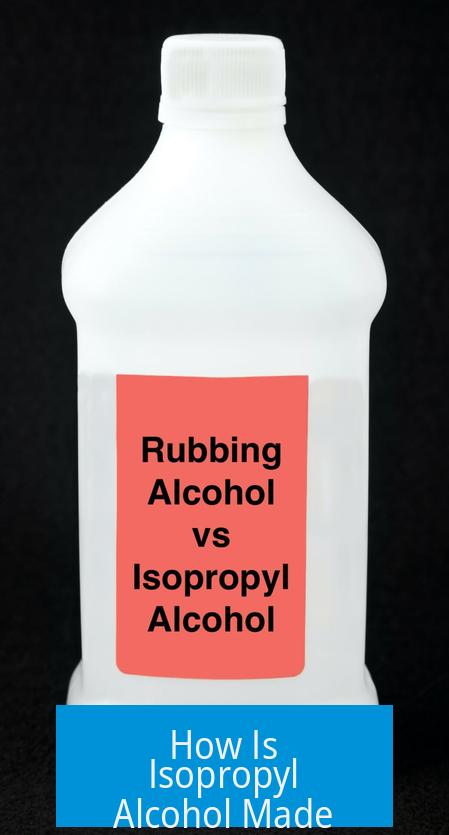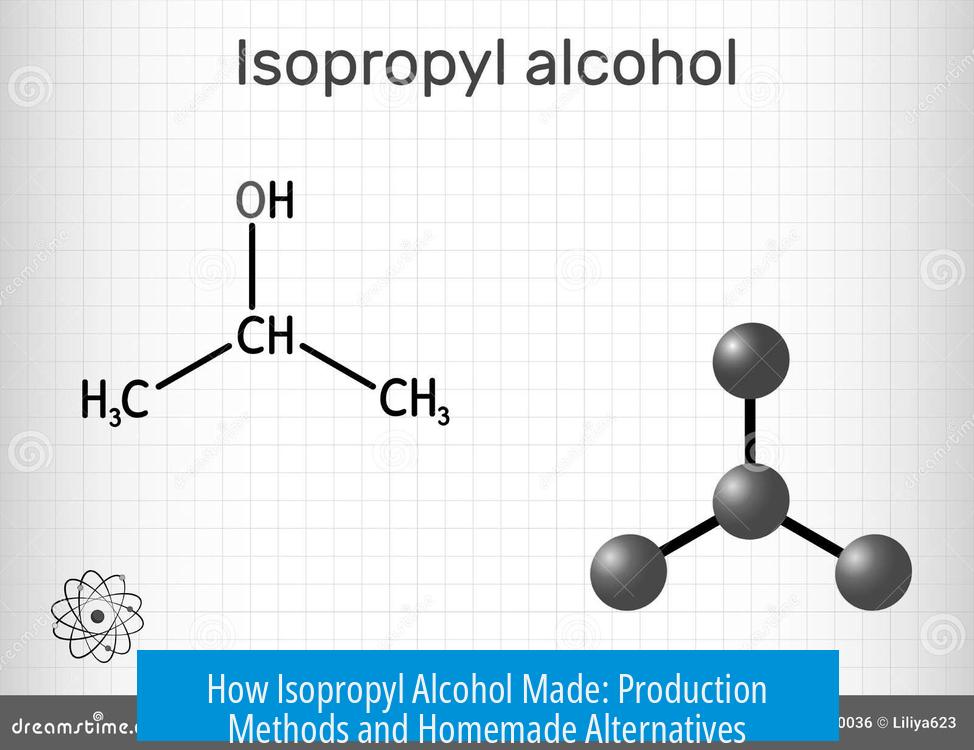How Is Isopropyl Alcohol Made?

Isopropyl alcohol is mainly produced by the hydration of propylene gas or by hydrogenating acetone, a by-product of the cumene process. These methods are economical and efficient, supporting large-scale industrial production.
1. Hydration of Propylene Gas
The most common industrial method produces isopropyl alcohol by adding water to propylene gas. This process occurs in refineries and is cost-effective for mass production.
- Propylene, derived from petroleum refining, reacts with water.
- The reaction results in isopropyl alcohol formation.
- This approach is favored due to low raw material costs and high yield.
2. Hydrogenation of Acetone
The cumene process produces phenol and acetone as a by-product. Since acetone has limited market demand, industries partially hydrogenate it to form isopropyl alcohol.
- Acetone is exposed to hydrogen under pressure and catalysts.
- The hydrogenation converts acetone into isopropyl alcohol.
- This method utilizes available chemical streams efficiently.
3. Homemade Alternatives: Ethanol vs. Isopropyl Alcohol
Unlike isopropyl alcohol, ethanol can be produced at home by fermentation, making it a practical choice for homemade sanitizers.
- Natural materials like bread, fruit, and sugar ferment with water to produce ethanol.
- After fermentation, distillation concentrates the ethanol.
- Ethanol is effective for sterilizing and easier to produce without specialized equipment.
Summary Table of Production Methods
| Method | Starting Material | Process | Key Advantages |
|---|---|---|---|
| Hydration of Propylene | Propylene Gas | Direct addition of water to propylene | Cost-effective, high volume |
| Hydrogenation of Acetone | Acetone (By-product) | Partial hydrogenation using catalysts | Utilizes by-products, reduces waste |
| Homemade Ethanol | Organic materials (bread, sugar) | Fermentation and distillation | Accessible, simple equipment |
Key Takeaways
- Isopropyl alcohol is primarily made by hydrating propylene gas or hydrogenating acetone.
- The cumene process supplies acetone, which serves as a feedstock for isopropyl alcohol production.
- Ethanol offers a simpler alternative for homemade sanitizers due to ease of fermentation.
For further reading on the cumene process, refer to the Cumene Process Wikipedia page.





Leave a Comment